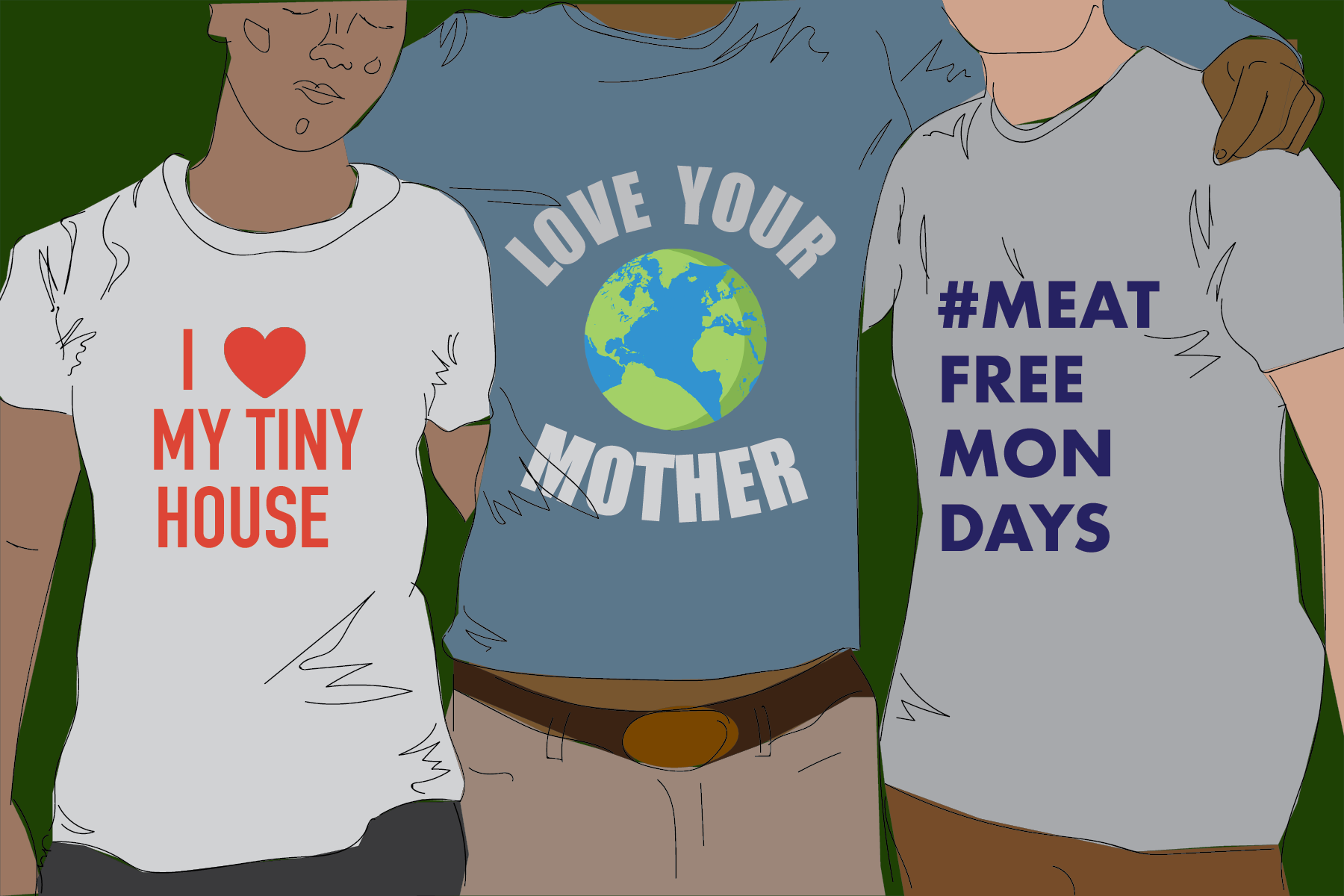Social media is the millennial mecca of rising trends. From the lighthearted fun of hourly-emerging memes to the more pressing activism of political justice, social media’s practicality keeps young people engaged with the world. Trends wither out, then reignite, but the lasting influence behind their initial popularity resonates within social media users. The latest, life-changing trend of this century is sustainability.
According to the World Wildlife Fund, living sustainably means to responsibly consume the Earth’s resources so that an exchange balance can be maintained and the perpetuation of environmental degradation is avoided.
There has been a noticeable shift in the current climate of social media toward sustainable living. With social media existing one thumb tap away, internet users have open access to advice on how to live more sustainably than in the past.
Previously, if people sought information about environmental health and desired to practice a sustainable lifestyle, they would have to put in laborious effort. Finding reliable sources and sifting through thousands of articles, articulating overly convoluted environmental details, is not as approachable as the straightforward facts available online.
Through its powerful and concise nature, social media simplifies the information rabbit hole down to palatable pieces.
Earlier generations look down upon both the millennials and Generation Z for their habitual engagement with technological platforms. Though, however trivial the internet interface might seem to critics, it plays an undeniable role in urging young people to educate themselves and raise awareness.
Following the rise of environmental activism on Instagram, Twitter and Facebook, millennials and Gen Z’ers admit to becoming more aware of environmental problems, such as ocean pollution or rising sea levels.
Jessica Bemis, an image arts photography student at Ryerson University, boasts a sizable following on Instagram — her followers coining her an “influencer.” Bemis uses her platform to inform her followers of the environmental tribulations plaguing the planet and to suggest small-scale lifestyle changes that can be smoothly incorporated in their day-to-day lives.
“I’ve been reducing the amount of meat I eat, and I don’t use plastic water bottles anymore,” Bemis informs. “There’s so many issues that climate change causes, and, the worse it gets, the more likely it will be irreversible.”
As a social media influencer, Bemis contributes copious amounts of time to her social media presence. She has observed a noticeable increase in environmental activism, despite similar influencers having loose connections to environmentalism.
Although many have only elementary knowledge in environmental affairs, millennials and Gen Z’ers remain concerned about the prosperity of their futures. Victoria Johnson, an environmental science student and member of the National Wildlife Federation, asserts that younger generations are becoming educated of the reality in which they live.
“There is more of a consensus in the scientific community that global warming is real, and now it is becoming more dire,” she says. “The Earth is our home and it provides us with everything we need to survive.”
Johnson implements small changes to promote sustainability in her life, such as recycling and opting to walk instead of traveling by car. Fully aware of the severity of climate change, she remains hopeful for her future, and she expects to further extend her sustainable practices by purchasing bamboo toothbrushes and reusable cloth grocery bags to minimize plastic waste.
The environmental impact brought upon by younger generations is not exclusive to limiting plastic consumption or downsizing their personal carbon footprint. On a grander scale, they are exercising immense influence over the actions of big businesses.
The Environmental Protection Agency’s (EPA) website states that large corporations are the biggest contributors to global carbon emissions.
The production process for fashion retailers, the animal industry and any business with a high production yield requires a considerable supply of energy. And the skyrocketing demand for products causes a production increase, in turn causing an energy consumption increase.
Young people now somewhat understand the economics behind a business’s livelihood, and they alter their consumer behaviors accordingly. Millennials tend to support companies whose values align with their own.
Seeing as sustainable living has become an imminent concern and prominent cause for which millennials advocate, they refuse to consume goods from environmentally-inconsiderate companies. Because millennials are one of the biggest consumer groups in the market, their decisions to boycott brands who harm the Earth hit particularly hard.
Big businesses, which rely on millennials’ fidelity, notice the new generation’s power within the consumer industry. They realize that for their businesses to thrive, they must take up the mantle of sustainability.
One company striving to reform their manufacturing process is European fashion colossus Zara. Considered a “fast fashion” brand for its rapid circulation of disposable clothing, Zara reportedly pledged to be 100% sustainable by 2025.
In the next five years, the fast fashion trailblazer anticipates to exclusively use cotton, linen and organic polyester in the production of all their clothing.
University of Leeds’ fashion and sustainability professor, Mark Sumner, warns that the production process of clothing requires liberal amounts of water and energy, emphasizing that synthetic material production requires the refinement of petroleum.
The change toward natural materials not only reduces the energy impact, but also creates biodegradable alternatives, eliminating the indefinite existence of synthetic materials on the planet.
Zara’s efforts at sustainable manufacturing appear a modest change, but the financial sacrifice the company must make amounts to $3.5 million. A sacrifice made in no small part for their predominantly millennial consumer base.
Millennials are also taking over the food industry. A Forbes article details the younger generation’s increasing commitment to a plant-based lifestyle in order to combat the gaseous pollution derived from the meat industry.
In response to the rising number of vegan diets, fast-food companies are beginning to introduce meatless substitutes to their menus to accommodate millennials’ demands.
Comparable to Zara’s 2025 sustainability statement, McDonald’s outlined a timely sustainability plan of their own. The golden-arched burger joint plans to switch to 100% sustainable and recyclable packaging, in addition to reducing the number of plastic toys packaged in kids meals after two U.K. children proposed a viral petition that pressured the company to cease its toy manufacturing.
Zara and McDonald’s vows to strive for sustainable practices compels higher standards for other companies to improve their own environmental ethics. The power of millennials and Generation Z goes unrivaled.
Their unfaltering morale and dedication to improving their own lives and those of their future descendants might well be the weapon needed to combat the global crisis of this century. This generation controls the fate of their world, and consequently, that of their lives.
“I don’t want the Earth to die,” Johnson finalizes, “If anyone is going to save our home, the change starts with us.”
















